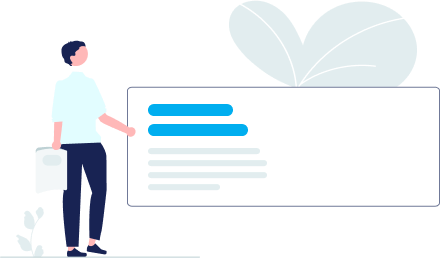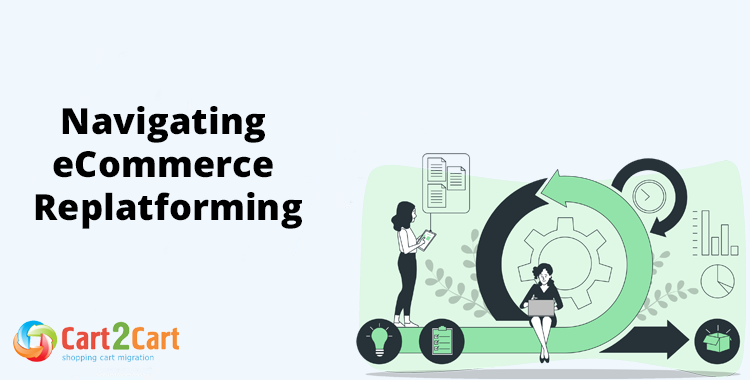JTL-Shop3 Migration
Effortlessly navigate your JTL-Shop3 Migration with Cart2Cart, the definitive solution when you need to seamlessly migrate from JTL-Shop3. Our fully automated process guarantees zero downtime for your current JTL-Shop3 store, ensuring uninterrupted operations throughout the entire transfer. Experience a secure, fast migration completed in just a few hours, eliminating the complexities typically associated with platform transitions. Cart2Cart expertly handles the comprehensive transfer of all vital data, including products, customers, orders, crucial SEO URLs, and much more, preserving your store's integrity. Trust our proven, secure methodology to transform your JTL-Shop3 store into its new home with unparalleled precision and reliability.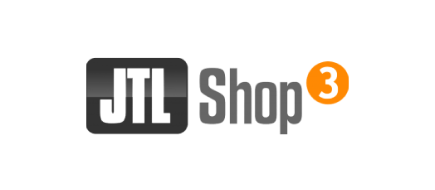
How to Migrate to JTL-Shop3
This step-by-step guide details how to securely migrate to JTL-Shop3 from any other e-commerce platform using Cart2Cart, ensuring complete data integrity for your online storefront.
- Register and Initiate: Create a Cart2Cart account to begin your platform switch. This initial step is free and takes only a minute.
- Connect Your Source Store: Provide the credentials for your current platform to allow secure API access for the data transfer.
- Connect JTL-Shop3 Target Store: Prepare your data in a CSV file according to JTL-Shop3's import requirements. You will then upload this file to the Cart2Cart migration wizard.
- Select Data and Options: Choose which data entities to move, including products, SKUs, and customer orders. Configure crucial options like 301 redirects to preserve your SEO rankings.
- Run a Free Demo Migration: Launch a free test transfer to move a limited set of your data. This allows you to check the results directly in your new JTL-Shop3 store before the full replatforming.
- Launch the Full Migration: Once satisfied with the demo, start the full migration. The process runs on our servers, ensuring no downtime for your business.
Pro-Tip: Migrating to JTL-Shop3 via this method is a target-only process that uses CSV file import. The great news is that no additional plugins are required for your JTL-Shop3 store.
Automated migration
Just set up the migration and choose the entities to move – the service will do the rest.
Try It Free
Data Migration Service Package
Delegate the job to the highly-skilled migration experts and get the job done.
Choose Package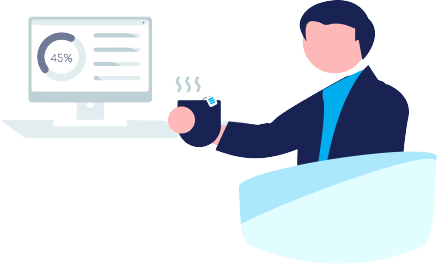
What data can be migrated from/to JTL-Shop3
-
Products
-
Product Categories
-
Manufacturers
-
Customers
-
Orders
Choose all the extra migration options and get 40% off their total Price
We’re committed to protecting our customers’ data security. Check out our Security Policy
The Cart2Cart service has all the necessary functionality to migrate store databases on JTL-Shop3 of any size and complexity. Below are the most popular migration directions among our customers:
Help Center
Let’s figure out everything about JTL-Shop3 migration through
Cart2Cart.
Discover our checklist, related articles, and answers on frequently asked questions.
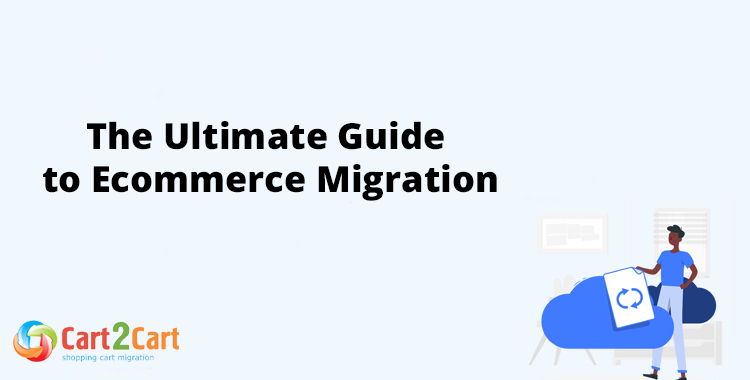
 June 7, 2023
June 7, 2023 The Ultimate Guide to eCommerce Migration: How-To Directions and Best Practices
Read full articlePay only for what you migrate - the cost depends on the number of records to be moved
Calculate Your JTL-Shop3 Migration Cost Instantly
Get an instant, transparent estimate of your specific JTL-Shop3 migration cost with our easy-to-use calculator. Discover your tailored JTL-Shop3 migration pricing now and confidently plan your move to JTL-Shop3, knowing your exact JTL-Shop3 migration price with no hidden surprises.
JTL-Shop3 Monthly Pulse: The Enduring Value of Stability in a Mature Ecosystem
In an e-commerce landscape defined by relentless change, the narrative for established platforms often shifts from disruptive innovation to steadfast reliability. This month, our analysis of JTL-Shop3 reveals a clear focus on reinforcing its foundation, underscoring a strategic commitment to the thousands of merchants who depend on its proven stability. While the market's attention may be drawn to newer versions, the ongoing enhancements to JTL-Shop3 tell a compelling story of long-term support, security, and operational continuity, proving that for many businesses, a predictable platform is the most powerful asset.
Sustaining its DACH Market Foothold
While specific growth metrics for the legacy JTL-Shop3 are not a primary focus, the platform continues to benefit from the immense strength of the overall JTL ecosystem within the German-speaking DACH region. JTL's integrated ERP, JTL-Wawi, remains a dominant force for small and medium-sized enterprises. This creates a powerful halo effect, where the trust and deep integration of the ERP system provide a compelling reason for merchants to maintain their JTL-Shop3 storefronts. The platform's market position, therefore, is not measured in new acquisitions but in its high retention rate among businesses for whom the seamless flow of data between warehouse and webshop is mission-critical.
Core Infrastructure Fortification
This month's key technical update was a maintenance release focused on ensuring continued compatibility and performance on modern server environments. The patch specifically addressed optimizations for PHP 7.4, a version many hosting providers are standardizing before mandating moves to PHP 8. For a merchant, this is not a trivial update; it is a direct investment in their store's longevity. The practical benefit is twofold: it mitigates the risk of forced, costly hosting upgrades and ensures that page load times and checkout processes remain consistent, protecting conversion rates without requiring a full platform overhaul.
The Ecosystem's Commitment to Longevity
A mature platform's health is often best judged by the activity of its third-party developers. We observed several key plugin partners, particularly in the payments and shipping sectors, release compatibility updates for JTL-Shop3. This signals a continued commitment from the developer community to support the existing user base. For business leaders, this is a critical green light, confirming that their essential integrations will remain functional and secure. It demonstrates that the ecosystem is not abandoning the platform, which de-risks the decision to delay a major version upgrade and allows businesses to plan their technology roadmap on their own terms.
The Strategic Importance of a Maintenance Release
The most significant "feature" released for JTL-Shop3 this month was not a new customer-facing tool but a comprehensive maintenance patch. This release bundled dozens of minor bug fixes, refined database queries, and improved error handling within the admin panel. While not headline-grabbing, this is arguably the most valuable update for a live business. It solves the small, persistent operational frictions that can consume employee time and frustrate customers. The strategic value here is enhanced operational efficiency and a reduction in support tickets, allowing merchants to focus on sales and marketing rather than troubleshooting.
Proactive Security Posture for Legacy Systems
JTL issued a security advisory and accompanying patch this month addressing a potential cross-site scripting (XSS) vulnerability in the customer account module. The update was a result of JTL's ongoing internal security audits, not a reported breach. For any enterprise or high-volume merchant, this proactive stance is paramount. It demonstrates that JTL's security commitment extends across its entire product lifecycle, not just its newest offerings. This builds immense trust and assures decision-makers that their customer data and transaction integrity are being actively protected against emerging threats, a non-negotiable for brand reputation.
Navigating European Regulatory Shifts
In response to evolving EU digital commerce regulations, a minor update was deployed to ensure JTL-Shop3's default templates and invoicing modules remain compliant with the latest VAT reporting requirements for cross-border sales. This is a critical update that directly impacts the bottom line and legal standing of merchants selling across Europe. By providing these essential regulatory updates for a legacy platform, JTL removes a significant compliance burden from its merchants, reinforcing the platform's value as a reliable partner for navigating the complexities of the European market.
The Calculated Decision to Remain: A Merchant Profile
While new brands launch on newer platforms, the insightful story this month comes from established players choosing to remain on JTL-Shop3. Consider the case of a mid-sized German distributor of specialized industrial components. Their decision to stay is strategic: their storefront is deeply integrated with a highly customized JTL-Wawi instance, managing thousands of SKUs with complex pricing tiers. For them, the unparalleled stability and perfect ERP synchronization of their current setup far outweigh the appeal of new front-end features. The cost and operational risk of re-platforming are substantial, making JTL's commitment to securing and maintaining Shop3 a direct enabler of their continued business success.
Source: Analysis based on JTL-Software official news blog, developer forums, and third-party e-commerce analyst observations for the DACH region.
Just set up the migration and choose the entities to move – the service will do the rest.
Try It FreeDelegate the job to the highly-skilled migration experts and get the job done.
Choose Package







